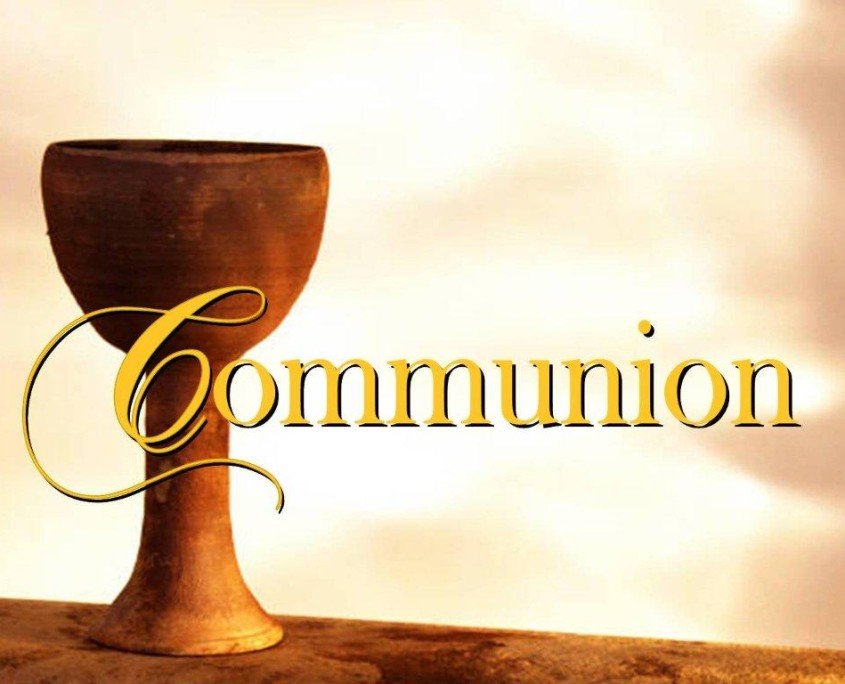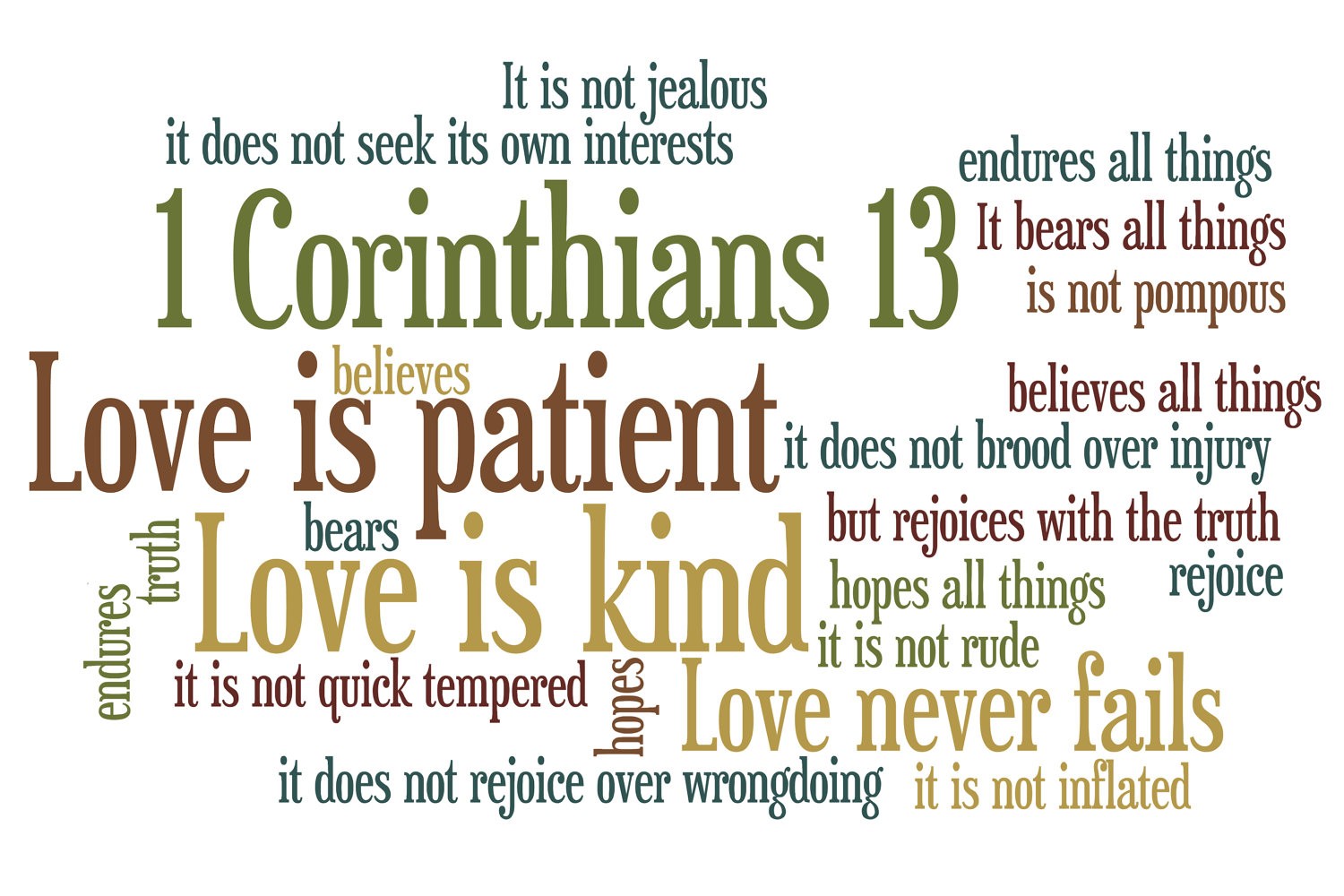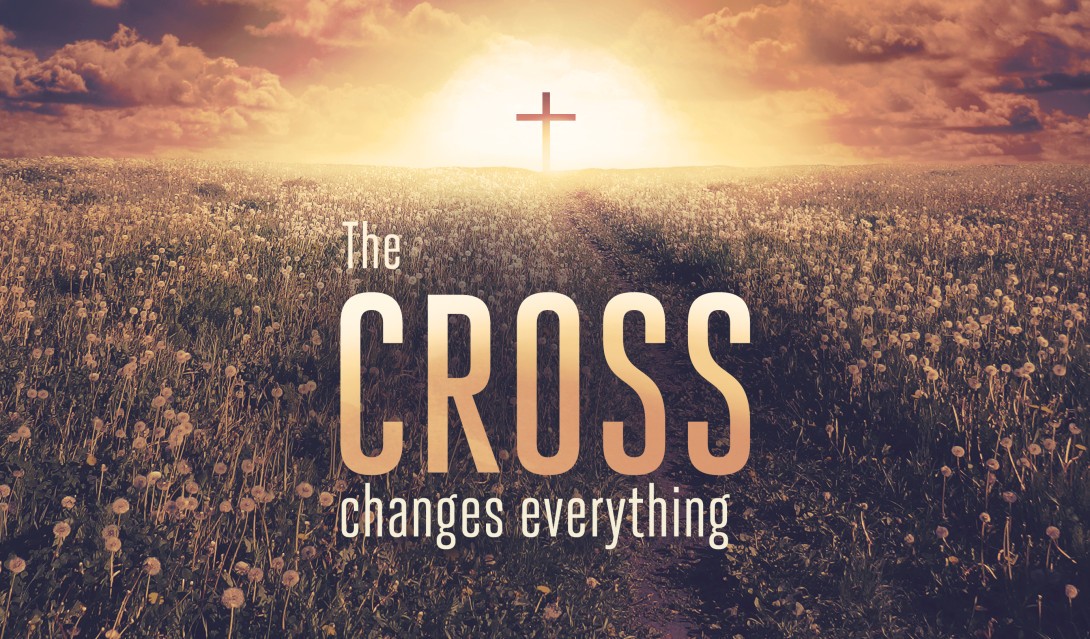BTC Phase 4: Lesson 1
Communion FAQs
BTC 4, Lesson 2 will give more about the purpose of the ceremony as well as offer a suggested Script; however, here you will find general information as well as frequently asked questions (FAQs) about Communion, such as who can officiate and what items you may need for your service.
About the word, “Communion”: Though the Gospel gives us several illustrations of Jesus at the Last Supper, the term, “Communion” was first used by Paul in Paul 1 Corinthians 10:16 and then later in Second Corinthians 6:14 and 13:14. Let’s take a look:
“The cup of blessing which we bless, is it not the communion of the blood of Christ? The bread which we break, is it not the communion of the body of Christ?” 1 Corinthians 10:16 (KJV)
“Be ye not unequally yoked together with unbelievers: for what fellowship hath righteousness with unrighteousness? and what communion hath light with darkness?” 2 Corinthians 6:14 (KJV)
“The grace of the Lord Jesus Christ, and the love of God, and the communion of the Holy Ghost, be with you all. Amen.” 2 Corinthians 13:14 (KJV)
Definition of Communion: An online dictionary will likely define the word “Communion” two ways, along these lines:
- Sharing or exchanging of intimate thoughts and feelings on a mental or spiritual level.
- The Part of a Christian worship service when bread and wine are consecrated and shared.
Purpose of Communion: Most of us in the Body have experienced this ceremony at one time or another, and for some, this has been on a regular basis, while for others, maybe only on special occasions. But when any of us think about Communion, we know that it usually offers us a time to remember the Sacrifices of Jesus as well as all of His teachings about the importance of Mercy in our daily lives.
But, how many of us realize (unto the aim of walking in Mercy), that we have more to do during this service than just reflect on a few historic Scriptures followed by the consumption of a taste of bread and wine?
According to the way it was explained by Paul, we are to open ourselves at Communion for examination by the New Man with regard to our thoughts, motives, and actions of late, to see if there are any “hindering elements” which either still remain in us or which have gained entry, perhaps due to the stress of everyday life or recent events. Yet, how many groups include in their practice of Communion an opportunity to turn to the Lord and His Grace for the ability to release anything that stands in the way of forgiveness and peace prior to approaching the altar?
In this Lesson and throughout BTC Phase 4, we will explore more of the purpose, traditions, history, and symbolism behind each aspect of this sacrament. But first, let’s go over some common questions people have about Communion.
Who can conduct a Communion ceremony? Some groups believe that only a “priest” can conduct a Communion Service, and usually their instructions also require that this “priest” be from their denomination. However, according to Scripture, all those who walk by Mercy and Grace are considered to be “Kings and Priests” in the New Covenant sense, as mentioned in the first chapter of Revelations:
“And hath made us kings and priests unto God and his Father; to him be glory and dominion for ever and ever. Amen.” Rev 1:6 (KJV)
So, as in the case of water baptism, any member of the Body of Christ can be an officiant for Communion. What matters most in this is having the right heart as well as possessing an understanding of the purpose of the Sacrament and its place in our ongoing process of spiritual growth. Therefore, this Phase of BTC will bring to mind the elements of what comprise Communion and how it can play a supportive role in our daily life.
Can I attend any Communion Service within the Body of Christ? It is acceptable to join in any Communion ceremony within the Body of Christ which follows the original instructions given by Jesus as described in the Gospels or as reviewed by Paul (later in 1 Corinthians, Chapter 11). Communion should include the sharing of the Bread (as the Mercy of God is acknowledged), along with the Wine or Juice (representing the “New Testament”) as follows:
“And he took bread, and gave thanks, and brake [it], and gave unto them, saying, This is my body which is given for you: this do in remembrance of me.” Luke 22:19 (KJV)
“After the same manner also [he took] the cup, when he had supped, saying, This cup is the new testament in my blood: this do ye, as oft as ye drink [it], in remembrance of me. 1 Corinthians 11:25 (KJV)
How often should we take Communion? Scripture does not give us a specific guideline as to how often (per week, month, or year) that we should practice Communion, but we do find this Scripture which gives us an indication of what our mindset should be for Communion:
“This do ye, as oft as ye drink it, in remembrance of me. For as often as ye eat this bread, and drink this cup, ye do shew the Lord’s death till he come.” 1 Corinthians 11:26 (KJV)
Some in the Body believe that since the First Communion took place during Passover, then, maybe we should have Communion ourselves only once per year. But, we in the Body are not under the Law of Moses, and besides, what Jesus did at the Last Supper, was not a repetition of a Jewish Passover tradition or ritual, rather it was a “New” experience for the disciples who were present.
“In that he saith, A new covenant, he hath made the first old. Now that which decayeth and waxeth old is ready to vanish away.” Hebrews 8:13 (KJV)
The Bread which Jesus shared pointed back to His teachings of Mercy during his earth walk, (reminding us that we are to be the Bread of Mercy), and also pointed to the Mercy of the Cross (about to come). The Wine, without the disciples knowing, did foretell of the Gift of Grace which would be revealed at Pentecost. Hence, Communion with Bread (Mercy) and Wine (Grace) remains part of the commemoration of our “New Testament” today.
“And as they were eating, Jesus took bread, and blessed it, and brake it, and gave it to the disciples, and said, Take, eat; this is my body. And he took the cup, and gave thanks, and gave it to them, saying, Drink ye all of it; For this is my blood of the new testament, which is shed for many for the remission of sins.” Matthew 26: 26-28 (KJV)
Getting our heart right: Regardless of the exact script you follow with your service, it is a priority to have the “right heart” prior to approaching the Lord’s Table. What does this mean? Well, “Getting our heart right” involves the desire to free ourselves from any “tare” of unforgiveness which is one of the reasons we are to have Communion as often as needed to clear away hindering elements which can quickly develop through the week. Let’s look at Paul’s insights about how to avoid coming to the altar unworthily:
“Wherefore whosoever shall eat this bread, and drink this cup of the Lord unworthily shall be guilty of the body and blood of the Lord. But let a man examine himself and so let him eat of that bread and drink of that cup. For he that eateth and drinketh unworthily, eateth and drinketh damnation to himself, not discerning the Lords’ Body. For this cause many are weak and sickly among you and many sleep. For if we would judge ourselves, we should not be judged. But when we are judged we are chastened of the Lord, that we should not be condemned with the world. Wherefore, my brethren when ye come together to eat, tarry one for another.” 1 Corinthians 11: 27–33 (KJV)
As you can see from these verses of Scripture, there are actually, several ways we can approach Communion in an unworthy condition which Paul also suggests is part of why some folks in the Body are ill, not in every case; but, illness can be brought on by hatred, negativity, and stress, for sure.
So, how can we prevent the “unworthy state”? One way is to “examine ourselves” in the area of forgiveness. Our instructions are clear in that we are “to forgive others as we have been forgiven.” We have been given “The Keys,” not to a beach house in Florida or to a Mercedes; but, we have the “Keys” to our state of consciousness and therefore we have a choice, as to whether or not we carry out the Commandments of Jesus, especially those which involve applying Mercy.
“For if ye forgive men their trespasses, your heavenly Father will also forgive you: But if ye forgive not men their trespasses, neither will your Father forgive your trespasses.” Matthew 6:14-15 (KJV)
“Take heed to yourselves: If thy brother trespass against thee, rebuke him; and if he repent, forgive him. And if he trespass against thee seven times in a day, and seven times in a day turn again to thee, saying, I repent; thou shalt forgive him.” Luke 17:3-4 (KJV)
To address the problem of “unworthiness,” Paul coaches us by saying that we should pay attention to what we are harboring in our hearts and therefore, “judge ourselves” so we won’t be “judged with the world on the Last Day,” and Jesus also warned us in his “depart from me” sermon, about what could happen to us if we fail to render mercy to others after having been given it ourselves.
“But he shall say, I tell you, I know you not whence ye are; depart from me, all ye workers of iniquity.” Luke 13:27 (KJV)
Paul then tells us to “tarry one for another,” which many believe means we need to hang around for each, offering to help in the way of prayer, or with the laying on of hands, or simply by offering a listening ear.
Since these verses of Scripture have such intense warnings about the consequences of entertaining and sustaining an “unworthy condition,” BTC has included a time of silence and prayer in our suggested Communion Script, prior to taking the bread and wine. This is to allow the New Man a moment to bring to mind anything that needs correction or healing before proceeding with the ceremony.
Here is another Scripture which speaks of how important it is to clear ourselves of any hindering element before approaching the altar:
“Therefore if thou bring thy gift to the altar, and there rememberest that thy brother hath ought against thee; leave there thy gift before the altar, and go thy way; first be reconciled to thy brother, and then come and offer thy gift.” Matthew 5:23-24 (KJV)
Isn’t wonderful that Jesus, knowing how challenging our growth experiences would be, provided the practice of Communion to be a refuge for us, a regular time when we can regroup and remember our commitment to extend Mercy and reach for Grace?
Can I participate in the service BTC offers if my church does it a different way? Yes, you can experience this Communion service alone or with others in the Body any time you feel led, and you can return to your “church” and have Communion there as well. If your organization does not emphasize clearing the soul and heart of “tares,” before going to the altar for the bread and wine, you can still do this quietly within yourself.
Recognizing our Unity: Communion is one Sacrament shared by most all denominations in the Body; ideally, we would be mindful (while partaking of the Bread and Wine) of our Unity as part of the “One Bread,” united by “One Spirit of God.”
“For we [being] many are one bread, [and] one body: for we are all partakers of that one bread.” 1 Corinthians 10:17 (KJV)
Can people outside the Body participate in a Communion Service? This is a sensitive area in that there certainly are huge variables in the Body when it comes to including non-believers in a ceremony (or not). Some are adamantly against it and others have an “open door, open heart” policy.
With regard to the BTC Communion Service, visitors can be included (if they would like to be) in order to extend hospitality, and it is possible that someone observing the experience could become more drawn to Jesus as a result. However, we do need to keep in mind that much of what we experience in Communion is a result of our commitment to the process of learning to walk in Mercy as we hold to Grace; so, someone who has not yet made a profession of belief and faith or who has yet to receive the “Gift of the Holy Ghost” (Grace) will not gain from the Communion experience in the same way that a member will, who has had time in the Body. But in the meantime, visitors can be made to feel welcome.
What items do I need for Communion? You could gather together a plate or two, some small cups or glasses, bread or crackers, juice (grape) or red wine (grape), a candle, a KJV Bible and you could have your favorite spiritual CDs and music player ready as well.
I have chosen to dedicate several such items for exclusive use at Communion ceremonies; however there is no rule about this mentioned in Scripture.
Hygiene at a Communion Service: When conducting a ceremony, it is no longer recommended that we share cups with others (drink from the same cup). God is pleased by our faith, but common sense in avoiding contact with communicable diseases is also wisdom which shows love and consideration to others as well.
Where can I get Communion supplies? For larger groups, there are businesses which sell pre-packaged and disposable supplies such as quantities of juice and communion crackers in individual servings. An internet search will produce the names and locations of outlets that you can visit or which offer shipping.
Do I have to use a special kind of bread, cracker, or juice? For smaller groups, the grocery store will offer everything you need. As for what sort of bread to use; there are traditional unleavened breads available, but we in the Body, are of the “New,” and therefore not under any Law or Covenant which requires a specific type of bread or cracker.
As for juice, it does not have to be Kosher and when a beverage like that is unavailable or unaffordable, other liquids can be used.
Really, what makes the bread and the chalice special is what they represent. For instance, we in the Body are to be the Bread (bread as a metaphor for Mercy) and thus we remain committed to the goal of learning how to live daily as the Bread of Mercy. As for the contents of the Cup/Chalice, this represents our New Covenant, a covenant which facilitates a deep relationship with the Spirit of God, made possible by His Grace (Holy Spirit). So, the bread and the wine represent both of the critical elements of our spiritual life.
Juice or Wine? As for whether to use juice or wine during Communion; well, Jesus drank wine as was customary for Jews of his time, though he did not partake of the “fruit of the vine” at the Last Supper.
“For I say unto you, I will not drink of the fruit of the vine, until the kingdom of God shall come.” Luke 22:18 (KJV)
There are only a few instructions in the New Testament for us regarding the consumption of wine, among which are that: leadership should not be “given to wine” or in other words, leadership should not be addicted to wine (1 Timothy 3:3 KJV) and that we should “Be not drunk with wine, wherein is excess; but be filled with the Spirit,” (Ephesians 5:18 KJV). Again, these Scriptures emphasize “consumption without excess,” but do not actually instruct us never to drink wine.
However, out of respect for the different “cultural views” of participants, for their health or other personal needs which we might not be aware of, it is recommended to use juice for Communion. What’s important here is to participate in Communion as well as any other “feast” or celebration, with a motive of Love, which would have us remain interested in the comfort and well-being of others around us.
“Whether therefore ye eat or drink, or whatsoever ye do, do all to the glory of God.” 1 Corinthians 10:31 (KJV)
What is the connection of Passover to Communion? For those of Jewish faith, Passover is an eight day festival held each spring commemorating the Exodus, a time when the Israelites were delivered from slavery in Egypt, many centuries ago. So, once per year, this sacred period of history is recognized and remembered with a special meal called a Seder along with other traditions.
To participate in any of the observances during Passover, no requirement is made to examine one’s soul condition for tares of bitterness, hatred, or lack of Mercy; however Passover is considered by many of the “New” to be a “Shadow” of Communion, (something yet to come) when walking in Mercy would be a very critical part of our Covenant, with re-dedication to that aim included in every Communion Service.
Transitioning from Passover to Communion: When Jesus held the Last Supper and prayed, this marked the change from Passover to Communion, having already established the Body based on Mercy; however, since the birth of the Church at Pentecost, we as “priests” of the New not only “Remember” the Sacrifice of Jesus during Communion, but we also affirm the Resurrection Power which is granting us a spiritual nature.
Lamb of God: During the time of the original Passover, a lamb had to be selected for sacrifice that was accepted and loved by the family. This paschal lamb was to be male, without spot or blemish, and not a bone was to be broken. Jesus fitting this profile, was prepared and presented to the people as well as religious leaders for “Acceptance of the Sacrifice.” Events prior to His crucifixion, such the anointing in Bethany, the ride into Jerusalem (commemorated on Palm Sunday), the many teachings in the Temple, plus His cleaning of the Temple, all led to Jesus being considered to be our Lamb of God.
One of the results of His Voluntary Sacrifice was that it not only “covered sin” for a time (such as what we saw with “sin offerings” that had to be repeated over and over under the Old”), but The Sacrifice of Jesus dealt with sin and removed it entirely. For those of us who enter into the process of gaining Life and Life Abundantly, we submit to walking in Mercy as we hold to Grace which ultimately delivers us from our “sin nature” or “old-man nature”:
“For I will forgive their iniquity, and I will remember their sin no more.” Jeremiah 31:34 (KJV)
“But Christ being come an high priest of good things to come, by a greater and more perfect tabernacle, not made with hands, that is to say, not of this building; Neither by the blood of goats and calves, but by his own blood he entered in once into the holy place, having obtained eternal redemption for us. For if the blood of bulls and of goats, and the ashes of an heifer sprinkling the unclean, sanctifieth to the purifying of the flesh: How much more shall the blood of Christ, who through the eternal Spirit offered himself without spot to God, purge your conscience from dead works to serve the living God?” Hebrews 9:11-14 (KJV)
Saved by the Blood: The blood of the lamb used in Old Testament practices at Passover was produced by the physical sacrifice of the Lamb (as part of external operations); and during the final plague in Egypt, the initial Passover sacrifice saved the lives of firstborn males in the households of believing Hebrews since death “past over” those homes with Passover blood smeared on their lintels and doorposts.
In our case, we do not use physical blood as any part of our remembrance ordinance since the Bread and Wine are only tokens of the “Body” (Mercy) & “Blood” (Wine). Our process happens internally at Communion in that what Jesus does for us transpires when we learn to “deny the self,” bypass the flesh-nature, operate in Mercy and gain a New-Life and a New-Nature, all made possible by His Spirit abiding within us:
“For the word of God is quick, and powerful, and sharper than any twoedged sword, piercing even to the dividing asunder of soul and spirit, and of the joints and marrow, and is a discerner of the thoughts and intents of the heart.” Hebrews 4:12 (KJV)
The Law in the Heart: Another “shadow” of this transition from “external practices and ordinances” to “internal transformation” (with the ordinance of Communion which supports internal transformation) can be seen in 1 Corinthians 10:2, “And were all baptized unto Moses in the cloud and in the sea.” Were they “Baptized” as we know baptism to be? No; but if you remember from BTC 2, Lesson 1, “Baptism for the Spiritual Soul,” the word, “baptism” means (among other translations), “to be identified with.” So the children “identified with God via Moses” as well as in the practice of all the external “Laws.” We however, are identified with the Father through Jesus Christ and His Law is implanted within us, and as already mentioned, our process happening internally.
“I will put my law in their inward parts, and write it in their hearts; and will be their God, and they shall be my people.” Jeremiah 31:33 (KJV)
As for when this sacrifice of animals stopped, even the Jews who rejected Jesus ceased with this practice around the time that Jerusalem and the temple were destroyed by Romans in 70 AD. It is said that Jesus was the “last sin offering,” having died in our place. This was foretold in Scriptures such as this one in Daniel:
“And after threescore and two weeks shall Messiah be cut off, but not for himself: and the people of the prince that shall come shall destroy the city and the sanctuary; and the end thereof shall be with a flood, and unto the end of the war desolations are determined. And he shall confirm the covenant with many for one week: and in the midst of the week he shall cause the sacrifice and the oblation to cease, and for the overspreading of abominations he shall make it desolate, even until the consummation, and that determined shall be poured upon the desolate.” Daniel 9:26-27 (KJV)
“For by one offering he hath perfected for ever them that are sanctified.” Hebrews 10:14 (KJV)
Any day is a great day for Communion: So, rather than a once a year experience, we can give or receive Communion any time. When we do, we open ourselves up for examination by the Spirit of God each time we observe this ordinance in order to identify any lack of Mercy on our part, as we acknowledge Jesus as our Passover Lamb by who’s Blood we are redeemed and taken from death to Life. (Learn more about the correlations in Rev. G. E. Newmyer’s article, “Communion & Passover.”)
Conclusion: So, it is very important for members of the Body during Communion, to not only reflect on examples from the life of Jesus, but also to make sure that we are continuing to submit to the Spirit for direction while remaining merciful to others as God has been to us.
We have also affirmed that it is indeed excellent to be corrected by the Spirit as we go through our spiritual journey. In the very least, we must partake of Communion with a heart that wishes to imitate Christ, even though we are not perfect in that endeavor. After all, when we participate in Communion to “Remember” what Jesus has done, this does not just represent a history lesson, but this ceremony is a reminder of how we are to live every day. Communion then becomes a way to refresh our focus and strengthen our resolve toward the goal of becoming merciful and Christ-like.
Now, let’s move on to the next Lesson, BTC 4, “The Communion Service Script” (with commentary) and see how you can conduct your own ceremony; and to conclude BTC Phase 4, we will cover more about the history of the service with Rev. Newmyer’s commentary, “Communion & Passover.”
All in all, it is hoped that you will come away with a heightened sense of awe regarding the Love and Mercy of Jesus and that you will truly enjoy the regular practice of this amazing and powerful ceremony which He has left for us to experience in our private time with God or to share with one another.
BTC Lessons are written by Ann M. Wolf © 2018, All rights reserved.






